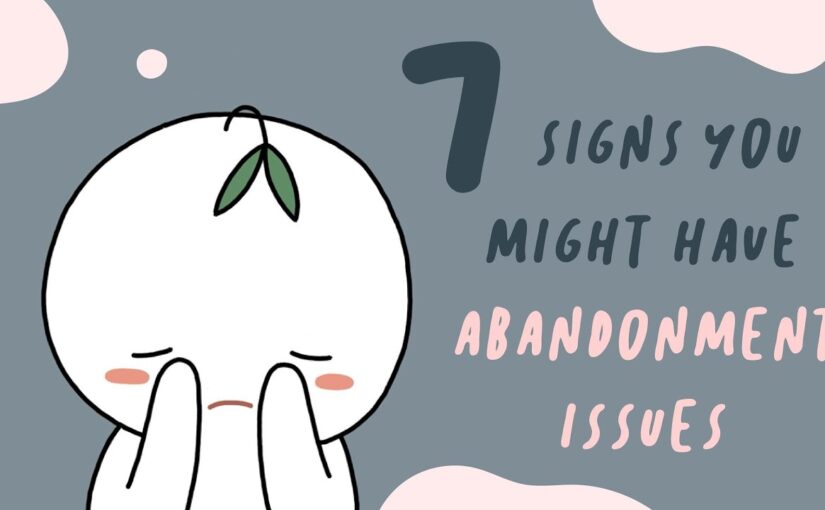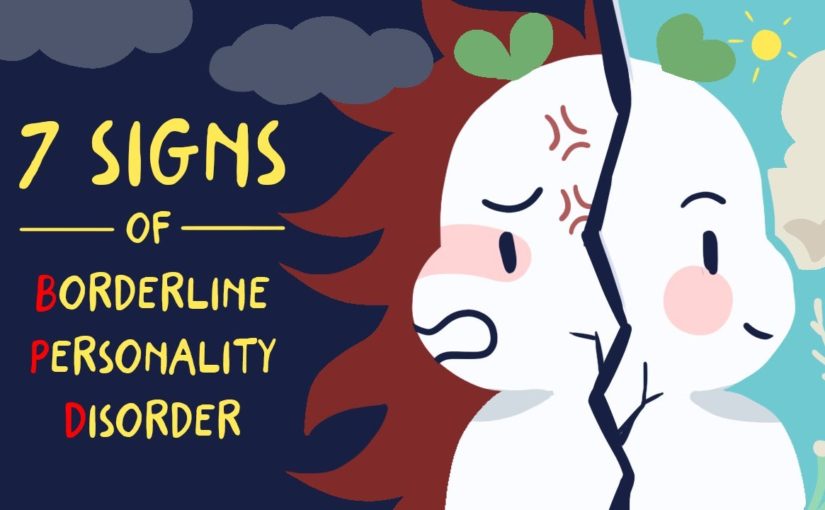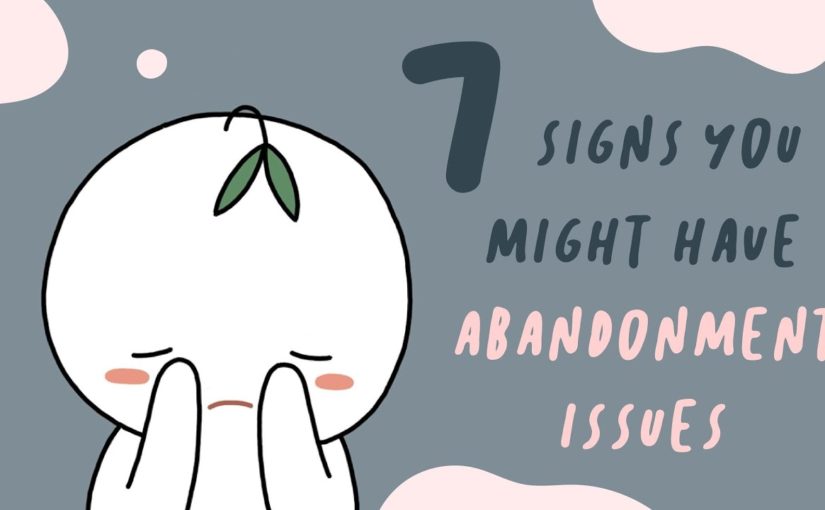
7 Signs You Have Abandonment Issues
Hey Psych2go family, welcome back to another video. Do you have an overwhelming fear of losing your loved ones? Do you distrust other people or have anxiety about being abandoned? Abandonment issues typically arise in childhood but can develop later on in life as well. The fear of abandonment is a serious type of anxiety that often stems from a traumatic experience. Some aren’t even aware of their expressed emotional trauma. But it can manifest into unhealthy behaviors over time. So, here are 7 Signs You may Have Abandonment Issues. One: you’re a people pleaser. Do you want to impress everyone you meet? Whether it’s your friends, acquaintances, or family members, you try to meet their expectations to get on their good side. You’re the one who tries harder in your relationship, and you’re willing to put everyone else’s needs ahead of yours, as long as it gets them to stay. If you have a strong need to please people and gain their approval, you may still have some unresolved abandonment issues.Two: you struggle with insecurity. Do you sometimes think that someday, the people closest to you will get sick of you and leave? People who are afraid of being abandoned often struggle with feelings of insecurity and inadequacy because someone you love has walked out on you in the past. You’ve internalized the emotional trauma. You may have wrongly believed that it was YOUR fault that they left. This can result in low self-esteem and a need for constant rereassuranceThree: you find it hard to trust people Do you find it hard to trust others to keep their promises or to be there for you? Do you want to be in control of your relationships and know everything that’s going on with your loved ones? Because you’ve been hurt in the past, you have a strong fear of being left alone.In certain cases, it can lead to feelings of unreasonable jealousy, suspicion, and possessiveness over your friends and romantic partners. Four: you’re afraid to be vulnerable Do you feel uncomfortable during moments of emotional intimacy and honesty? Are you scared of getting close to someone or needing them too much? Your deep-seated fear of abandonment may manifest into a fear of intimacy and emotional vulnerability. You may unconsciously sabotage your relationships by pushing people away just as you start to care for them. You may struggle with commitment, and act detached and indifferent when you do care.Five: you look for reasons to leave. Do you always look for reasons to leave in fear of getting too attached to someone? You hold your loved ones to unrealistically high standards and you only focus on their flaws. You don’t give them any room for mistakes. You do this knowing that they’re bound to disappoint you. And when they fail to meet your expectations, you use it as an excuse to give up and leave. Six: you move on too quickly Do you have difficulty forming meaningful relationships that last because of a deep-seated fear of abandonment? When you cycle through relationships one after another and move on too quickly, you’re not allowing yourself the time and space to deal with the emotional fallout.Instead, you dive into something new and exciting to distract yourself. You never want to be alone, because it would force you to confront the personal issues you’ve been repressing for so long. And number 7… you cling to unhealthy relationships Do you find yourself gravitating towards all the wrong people? Have you stayed with someone knowing they’re bad for you? The trauma of being abandoned, especially at a young age, can stay with you for a long time. And since we’re all hard-wired to recreate our early childhood experiences for comfort and familiarity, your childhood taught you the wrong things about love. It’s not uncommon for you to be drawn to people who treat you poorly. Do you relate to any of the signs mentioned here? I know I did… Is a fear of abandonment harming your relationships and keeping you from being happy? Let us know in the comments below. If you found this video helpful, be sure to like and share this video with those who might benefit from it! Don’t forget to subscribe to Psych2go for more videos! Thanks for watching, and we’ll see you in the next one! Do you have an overwhelming fear of losing your loved ones? Do struggle with trust issues or have anxiety about being abandoned? Abandonment issues typically arise in childhood but can develop later on in life as well. The fear of abandonment is a serious type of anxiety that often stems from a traumatic experience. Some aren’t even aware of their repressed emotional trauma, but it can manifest into unhealthy behaviors over time. Here are 7 signs that you may have abandonment issues. If you want to learn more about how your childhood trauma may cause you to have abandonment issues, be sure to check out our video “7 Ways Childhood Trauma Follow You Into Adulthood”:  • 7 Ways Childhood Trauma Follow You In… #abandonment #issues #psych2go ᵛᶦᵈᵗᵒᵒⁿ™ ².¹ ᴏɴᴇ ᴛɪᴍᴇ ᴏꜰꜰᴇʀ – ᴛʜᴇ 2ᴅ ᴀᴍɪɴᴀᴛɪᴏɴ ᴠɪᴅᴇᴏ ᴍᴀᴋᴇʀ After The Massive Success Of VidToon™ 1.0
And More Than 10ᴋ Happy Customers…WE ARE BACK ON Popular Demand! Redefine Profitability With The World’s Easiest & Most Popular Video Animation Software It’s ʙɪɢɢᴇʀ. ʙᴇᴛᴛᴇʀ. ᴀɴᴅ ꜰᴀꜱᴛᴇʀ.
• 7 Ways Childhood Trauma Follow You In… #abandonment #issues #psych2go ᵛᶦᵈᵗᵒᵒⁿ™ ².¹ ᴏɴᴇ ᴛɪᴍᴇ ᴏꜰꜰᴇʀ – ᴛʜᴇ 2ᴅ ᴀᴍɪɴᴀᴛɪᴏɴ ᴠɪᴅᴇᴏ ᴍᴀᴋᴇʀ After The Massive Success Of VidToon™ 1.0
And More Than 10ᴋ Happy Customers…WE ARE BACK ON Popular Demand! Redefine Profitability With The World’s Easiest & Most Popular Video Animation Software It’s ʙɪɢɢᴇʀ. ʙᴇᴛᴛᴇʀ. ᴀɴᴅ ꜰᴀꜱᴛᴇʀ.



 This could manifest in an irrational fear that loved ones will
leave you, social anxiety, or a desire to please everyone around you to try and prevent them
from rejecting you. The fact that people
with BPD often struggle to maintain relationships
only adds to this fear. Five, unstable relationships. Do you face difficulty maintaining interpersonal relationships like friendships, sibling bonds,
or romantic relationships? It can be difficult for people with BPD to preserve relationships because they often idealize
or think very highly of and then romanticize someone for a while and then devalue distrust
or become disgusted with them. A 2016 study suggests
that some people with BPD react to relationship
stressors with impulsivity which generates instability
in relations as well. Six, impulsive decisions. While cycles of impulsive
decisions commonly occur in those with bipolar disorder
and other mood disorders, they’re also a sign of BPD. Examples of impulsive decisions
someone with BPD might make are substance abuse,
spending or gambling sprees, skipping work or
appointments, unprotected sex, binge eating, or reckless driving. Impulsive decisions are
a hidden sign of BPD because others may think this impulsivity comes from low impulse control or another mental disorder instead of BPD. And seven, disassociation. Finally, people with
borderline personality disorder may disassociate more frequently and for longer periods than typical functioning people. Disassociation is when thoughts or emotions enter your mind and you find yourself incapable
of focusing on your actions, instead operating on autopilot or watching yourself do things without feeling connected to your body. Disassociation is a hidden symptom of BPD because others may assume
someone who is disassociating is just tired or distracted. Disassociation can also
be a symptom of PTSD or dissociative identity
disorder, also known as DID. But if it occurs alongside
the other things, it’s likely a hidden sign of BPD. It’s important to remember that mental disorders
affect everyone differently. Not everyone experiences all the symptoms. You might also experience
symptoms not listed here. That’s why it’s so important to seek help from a licensed mental health professional with experience in personality disorders if you think you or someone
you love might have BPD. Have you or someone, you
know, been diagnosed with BPD? Are you now better equipped to look out for its hidden symptoms? Let us know in the comments below. If you found this video helpful, be sure to hit the like
button and subscribe. And share it with someone
who might benefit from it. Thanks for watching
and we’ll see you soon..
This could manifest in an irrational fear that loved ones will
leave you, social anxiety, or a desire to please everyone around you to try and prevent them
from rejecting you. The fact that people
with BPD often struggle to maintain relationships
only adds to this fear. Five, unstable relationships. Do you face difficulty maintaining interpersonal relationships like friendships, sibling bonds,
or romantic relationships? It can be difficult for people with BPD to preserve relationships because they often idealize
or think very highly of and then romanticize someone for a while and then devalue distrust
or become disgusted with them. A 2016 study suggests
that some people with BPD react to relationship
stressors with impulsivity which generates instability
in relations as well. Six, impulsive decisions. While cycles of impulsive
decisions commonly occur in those with bipolar disorder
and other mood disorders, they’re also a sign of BPD. Examples of impulsive decisions
someone with BPD might make are substance abuse,
spending or gambling sprees, skipping work or
appointments, unprotected sex, binge eating, or reckless driving. Impulsive decisions are
a hidden sign of BPD because others may think this impulsivity comes from low impulse control or another mental disorder instead of BPD. And seven, disassociation. Finally, people with
borderline personality disorder may disassociate more frequently and for longer periods than typical functioning people. Disassociation is when thoughts or emotions enter your mind and you find yourself incapable
of focusing on your actions, instead operating on autopilot or watching yourself do things without feeling connected to your body. Disassociation is a hidden symptom of BPD because others may assume
someone who is disassociating is just tired or distracted. Disassociation can also
be a symptom of PTSD or dissociative identity
disorder, also known as DID. But if it occurs alongside
the other things, it’s likely a hidden sign of BPD. It’s important to remember that mental disorders
affect everyone differently. Not everyone experiences all the symptoms. You might also experience
symptoms not listed here. That’s why it’s so important to seek help from a licensed mental health professional with experience in personality disorders if you think you or someone
you love might have BPD. Have you or someone, you
know, been diagnosed with BPD? Are you now better equipped to look out for its hidden symptoms? Let us know in the comments below. If you found this video helpful, be sure to hit the like
button and subscribe. And share it with someone
who might benefit from it. Thanks for watching
and we’ll see you soon..

 Five: you look for reasons to leave. Do you always look for reasons to leave in fear of getting too attached to someone? You hold your loved ones to unrealistically high standards and you only focus on their flaws. You don’t give them any room for mistakes. You do this knowing that they’re bound to disappoint you. And when they fail to meet your expectations, you use it as an excuse to give up and leave. Six: you move on too quickly Do you have difficulty forming meaningful relationships that last because of a deep-seated fear of abandonment? When you cycle through relationships one after another and move on too quickly, you’re not allowing yourself the time and space to deal with the emotional fallout. Instead, you dive into something new and exciting to distract yourself. You never want to be alone, because it would force you to confront the personal issues you’ve been repressing for so long. And number 7… you cling to unhealthy relationships Do you find yourself gravitating towards all the wrong people? Have you stayed with someone knowing they’re bad for you? The trauma of being abandoned, especially at a young age, can stay with you for a long time. And since we’re all hard-wired to recreate our early childhood experiences for comfort and familiarity, your childhood taught you the wrong things about love. It’s not uncommon for you to be drawn to people who treat you poorly. Do you relate to any of the signs mentioned here? I know I did… Is a fear of abandonment harming your relationships and keeping you from being happy? Let us know in the comments below. If you found this video helpful, be sure to like and share this video with those who might benefit from it! Don’t forget to subscribe to Psych2go for more videos! Thanks for watching, and we’ll see you in the next one!
Five: you look for reasons to leave. Do you always look for reasons to leave in fear of getting too attached to someone? You hold your loved ones to unrealistically high standards and you only focus on their flaws. You don’t give them any room for mistakes. You do this knowing that they’re bound to disappoint you. And when they fail to meet your expectations, you use it as an excuse to give up and leave. Six: you move on too quickly Do you have difficulty forming meaningful relationships that last because of a deep-seated fear of abandonment? When you cycle through relationships one after another and move on too quickly, you’re not allowing yourself the time and space to deal with the emotional fallout. Instead, you dive into something new and exciting to distract yourself. You never want to be alone, because it would force you to confront the personal issues you’ve been repressing for so long. And number 7… you cling to unhealthy relationships Do you find yourself gravitating towards all the wrong people? Have you stayed with someone knowing they’re bad for you? The trauma of being abandoned, especially at a young age, can stay with you for a long time. And since we’re all hard-wired to recreate our early childhood experiences for comfort and familiarity, your childhood taught you the wrong things about love. It’s not uncommon for you to be drawn to people who treat you poorly. Do you relate to any of the signs mentioned here? I know I did… Is a fear of abandonment harming your relationships and keeping you from being happy? Let us know in the comments below. If you found this video helpful, be sure to like and share this video with those who might benefit from it! Don’t forget to subscribe to Psych2go for more videos! Thanks for watching, and we’ll see you in the next one!